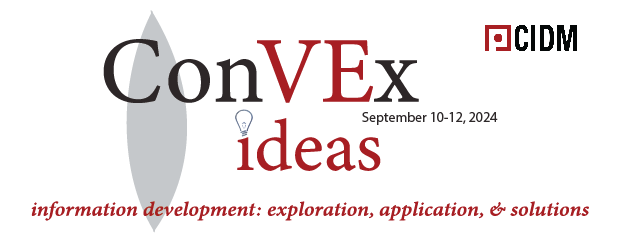Writing for Localization: Hands-on tips and best practices
Presentation Abstract
This presentation is designed to teach best practices for writing content destined for localization. We’ll discuss the theory behind writing methods, word selection, design elements, and other considerations that writers are faced with. Writing styles, specific cultural considerations, and the importance of working with properly internationalized templates will all be addressed. The goals are to help participants identify potential localization issues in their own writing and understand the impact of their choices on localization quality and the cost of translation.
Writers’ choices impact how translators can work with content. They also greatly impact the cost and timing of translation, which technology can be used, as well as if previous translations may be reused in a structured way. Optimizing translation reuse relies heavily on a writer’s consistency and content management practices. What’s more, internationalizing templates and design elements can greatly reduce the time and cost to finalize localized documentation. Writers can single-handedly save their company thousands of dollars in translation costs by making good choices. Together we will consider best practices that can be implemented immediately.
Beyond the theory, we will explore examples of localization challenges relevant to the types of content being developed by many companies. We’ll look at manuals, help content, web content, graphics, images, software, etc. and discuss why it’s so important to consider the destination and end use of the content being developed. If localization is part of your content’s life cycle, then this is an excellent way to see how what you create affects the localization process.
Practical handouts will be made available upon request.
What can attendees expect to learn?
The audience will learn best practices of writing for localization while identifying potential issues in their own writing and current content. The skills they’ll take away from the presentation will be applicable to current and future content, allowing them to implement what they’ve learned immediately.
Meet the Presenter

Lisa Pietrangeli is a managing partner and executive director at 36Software. At 36, Lisa specializes in working with clients to develop customized content development strategies. Lisa brings over 16 years of experience to 36Software, having worked extensively with companies around the world, helping them to streamline their content development, document creation, and localization processes. Before joining 36Software, Lisa was director of global client solutions at Language Intelligence, where she worked with clients to develop internationalization strategies for all stages of the content development process, from authoring through to translation. Her extensive experience has included everything from project management, resource selection and management, to business development, localization consulting and managing client relationships. Her experience, combined with her analytical skills, make Lisa an ideal partner with whom to evaluate a company’s current state and help them implement an effective, practical, useful solution.
